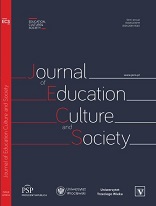Remote qualitative interviews
Remote qualitative interviews
A contribution towards the analysis of remediation
Author(s): Mikołaj ŁątkowskiSubject(s): Methodology and research technology
Published by: Fundacja Pro Scientia Publica
Keywords: qualitative interviews;remediation;qualitative researchers;interviews;
Summary/Abstract: Aim. The aim of this article is to contribute towards a wider analysis of remote qualitative interviews taking into consideration the context of qualitative research as a social practice, which is often overlooked in the body of literature. Methods. The study is based on twelve in-depth interviews with qualitative researchers conducted by the author. The data is analysed with the focus on social aspects of qualitative interviews which engage the interviewee and the interviewer alike. Results and conclusion. The analysis shows that, from the perspective of the researcher, the social aspects of qualitative interviews constitute an important part of the research method. The interview is a meeting that combines methodological features with the attitude of involved people. Researchers are accustomed to in-person interviews and from that perspective, they evaluate possible losses caused by remote research. However, as they self-reflect, this is not always an inherent feature of the new media but rather a question of how they are used and by whom. The interview is a meeting that utilises communication habits and experiences from both sides of the conversation – the interviewer and the interviewee. It is important to take this fact into consideration while analysing the potential of remote interviews, especially when social isolation caused by the COVID-19 pandemic is changing our communication habits. Cognitive value. The remote qualitative interviews are often described from the perspective of usability and effectiveness. This article describes researchers as a part of the research process who have their own attitudes and experiences in conducting research. From the perspective of social practices, these are almost as important as the knowledge and attitude of interviewees and they also affect the results of the research process.
Journal: The Journal of Education, Culture, and Society
- Issue Year: 12/2021
- Issue No: 1
- Page Range: 202-211
- Page Count: 10
- Language: English

